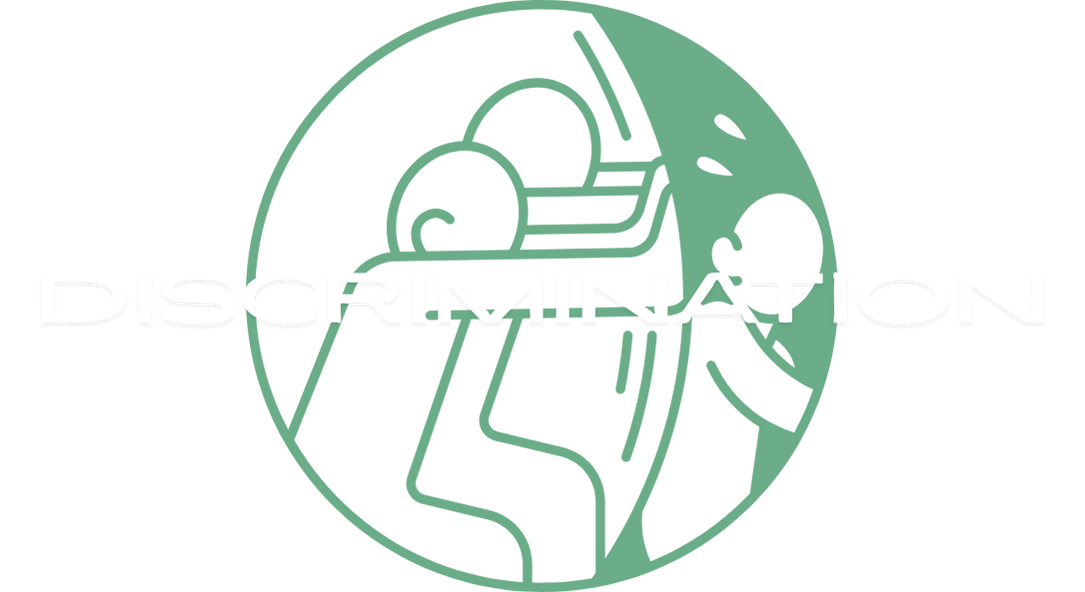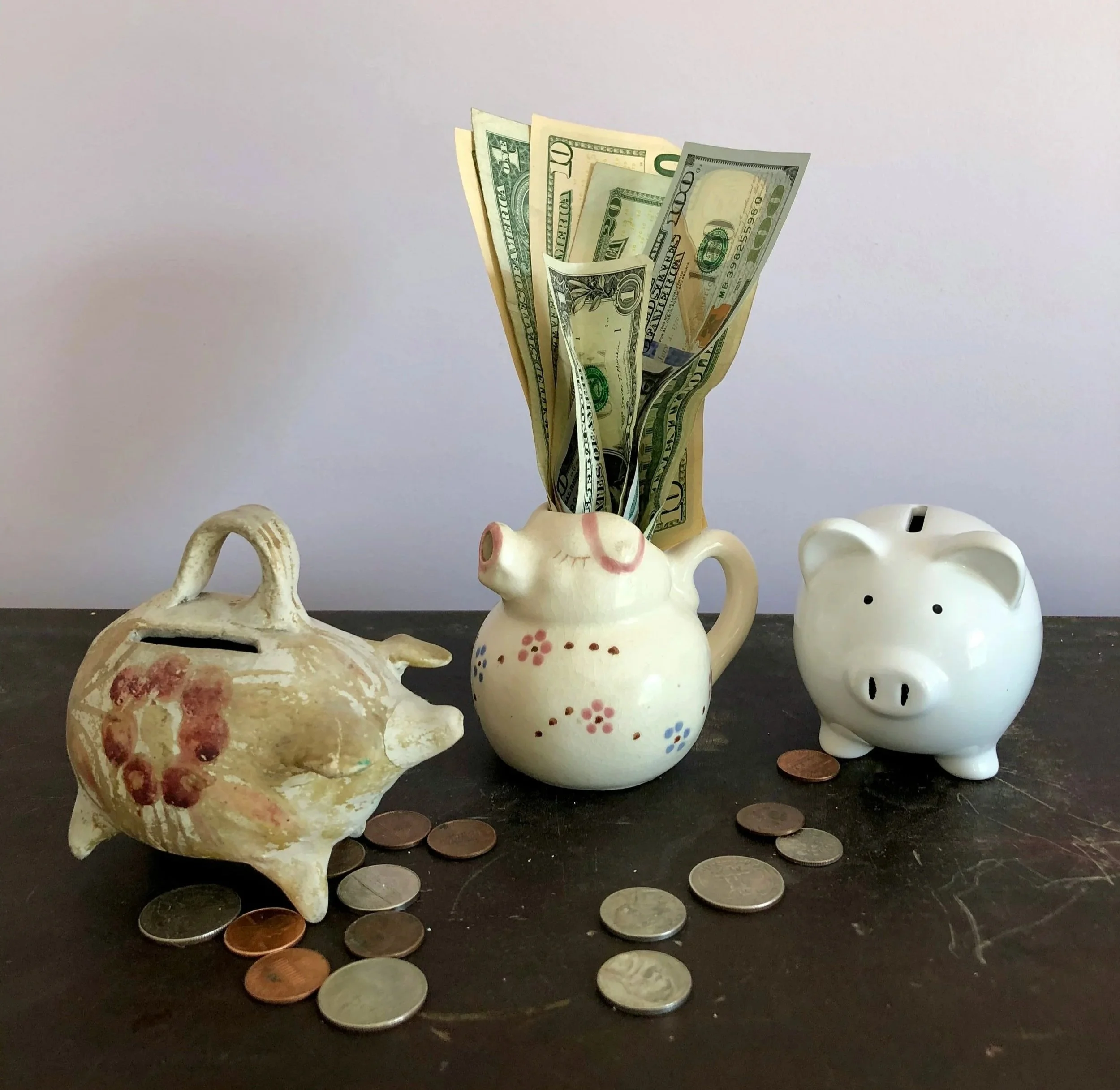
“Why am I being looked at in that way? I just feel very normal”
Society in the Netherlands is diverse, more than 25% of the population has at least one parent born abroad. People have different reactions to this diversity; some enjoy it, whilst others seem to be more reluctant. Regardless of one's personal feelings about diversity, the Dutch law states that everyone should be treated equally. It is covered explicitly in the first article of the Dutch constitution:
“Everyone situated in the Netherlands is treated equally in all cases. Discrimination because of religion, beliefs, political affiliation, race, gender, handicap, sexual orientation, or other grounds is not allowed”
Additionally, the Equal Treatment Act states discrimination constitutes a violation of several sections of the penal code. The official stance of the Netherlands is clear: discrimination should not happen within our country.
Still, discrimination takes place on a daily basis. In 2023 alone, approximately 2 million people reported experiencing discrimination, which translates to more than 1 in every 10 people. And the majority of them experienced this more than once within a single year.
Those affected include women, persons with disabilities, members of the LGBTI+ community, and many more. However, the demographic most discriminated against is first- and second-generation immigrants. Discrimination targeting them is only increasing, as shown by figures from 2021 and 2023. Out of all the instances of discrimination in 2021, 26,6% were based on nationality. In 2023, that percentage has risen to 33%. This rise is most likely caused by the increasingly hostile social climate surrounding immigrants and refugees. Dutch society shows a trend of declining solidarity, rising intolerance, and growing tensions. Although this is not only directed towards immigrants, they do experience this intolerance disproportionately.
More than 1 in 10 Dutch residents felt discriminated against in 2023 [Source]
Percentage of people discriminated against based on nationality
“When people can see that I am progressive and open and not what they think I am, they will treat me with respect, be open, and they will be welcoming. But if I didn’t actively show that, they will not take the effort to explore it”
Not a myth
Discrimination is not just a myth created to police what we're allowed to say. It is a well-researched phenomenon that affects many people, having a profound impact on their lives. Discrimination is the unfair treatment of a person based on personal characteristics and can take many different forms. People experiencing discrimination can receive negative comments, have more difficulties in finding a job or housing, or experience aggressive behaviour, among other challenges.
There are two types of discrimination: interpersonal and institutional. Interpersonal discrimination occurs between people. Sometimes this discrimination is visible, such as aggressive behaviour or destruction of property. But racism can also be expressed more subtly, making it harder to recognise. This type of racism is called covert racism. It stems from biases, and it can range from microaggressions— small, everyday slights and negative comments that rely on stereotypes—to influencing decision-making and behaviour.
Institutional or systemic discrimination is when organisations have policies, rules, and processes that discriminate against certain groups or people, creating a system that works against these groups. These systems cause of covert racism, which can lead to profiling, worse access to social services, stereotyping, and stigmatising in the media.
“I have worked in many places and they always ask me: ‘are you fasting?’. I’m not Muslim. It is not because I have a beard that I am Muslim.”
The child benefits scandal
A concrete example that shows the effects of institutional discrimination is the child benefits scandal (toeslagenaffaire). For years, many parents were accused of purposefully withholding money and they were prosecuted for fraud on their child benefits. As a result, people fell into debt, lost their homes, and faced other challenges. People tried to address the issue but were unsuccessful. Until 2018, when RTL Nieuws and Trouw reported on the matter. The issue quickly went viral, the Secretary of Finance resigned, and an investigation into the tax administration office was started. This investigation revealed that many parents were wrongfully accused of fraud by the Dutch tax office, causing big debts, psychological problems, and even the eviction of children by child protection. Most of the victims were families with a migration background. In 2022, the tax administration office admitted that ethnic profiling was used in their procedures, making immigrants more vulnerable to wrongful accusations.
The child benefits scandal is a clear example of institutional racism. Research has found that institutional racism happens regularly, but usually there is not such clear evidence. Without media coverage, the investigation exposing problematic stereotyping in the system would not have occurred. Since institutional racism is a recurring phenomenon, how many more systems like this are in place that simply go unnoticed?
Reasons people discriminate
The reasons behind discrimination are complex and multifaceted. Studies point to several contributing factors, but they are not exhaustive. Research has found that discrimination occurs in various settings and affects individuals. However, what drives individuals to discriminate remains difficult to pinpoint and even harder to investigate.
The GGD (Dutch public health care organisation) distinguishes 3 reasons people discriminate, and Amnesty International adds 2 more:
People often discriminate due to ingrained stereotypes, fear of the unfamiliar, or social conditioning that promotes "us versus them" mentalities. It is a subconscious fear of the unknown, which creates a gap difficult to bridge. Additionally, a lack of education or exposure to diversity can lead to prejudices and biases which may turn into discriminatory behaviour.
Another driver is the feeling of competition; the fear that others may take away jobs or resources. As individuals and groups seek to protect their interests, this perceived competition can fuel discriminatory actions.
We live in a complicated world with a lot of complex issues. It might feel easier to point to a single group as the cause of all our problems. However, this oversimplification often leads to blaming groups for things they did not cause, which in turn results in unfair treatment.
Recognising these varying motivations is essential for addressing the root causes of discrimination. To create a country where everyone is treated equally, we need to understand the ways discrimination is a part of our society today.
“I saw the pure discrimination without any hiding, because most of the people who work there are from Eastern Europe, refugees, foreigners, whatever. And the team leaders and supervisors, they were awful … And there is no supervision from the government. It’s really bad conditions. It’s inhumane actually”
Effects of discrimination
Regardless of the reasons, discrimination has serious consequences. Discrimination and prejudices have various effects that range from barely noticeable to severe and even life-threatening. It affects the victims, but also society as a whole. 51% of people who experienced discrimination lost trust in people. Discrimination changes how people view each other and society, affecting how we interact, and influencing how we as a society behave.
Discrimination can have obvious direct effects: not being hired can lead to unemployment and financial insecurity; threats can cause lasting sense of fear and lack of safety; etc. However, discrimination can also have less straightforward effects: People who get discriminated against can get psychological issues, for example lower self-esteem, depression, or anxiety disorders. When someone is exposed to stress due to
discrimination for extended periods of time, these issues can even turn into physical problems.
Discrimination leads to social exclusion, less (professional) chances, and even health issues. It is not just about people feeling uncomfortable, discrimination changes people's lives for the worse. To create an inclusive environment where everyone can thrive and contribute to the collective good, it is important that the roots of discrimination get properly addressed.
Based on research on experienced discrimination in 2023
“I had heard some stories that refugees are ‘not welcome’ and that we are ‘just searching for economic chances’. That made me feel even less welcome.”
The story of Hossein
Someone who deals with a lot with racism is Hossein. He is a 30 year old surgeon with 3 brothers, who fled from Iran 12 years ago. He is a musician who loves photography, and values friendships where the door is always open. However, he often notices that people often treat him based on their own prejudices and assumptions that don't align with who he is.
He describes many ways in which he experiences discrimination, both personally and as a refugee. This ranges from stereotyping and strange looks on the street to inappropriate remarks at work. Some people even ‘confide’ in him once they learn he is Iranian rather than Moroccan, saying things like, “Why can’t Moroccan youth behave like you?” as if he represents a ‘good refuge’. He sees racism as deeply ingrained across the country.
When he first arrived in the Netherlands, he felt welcomed. In Iran he was judged for being a musician or having long hair, and he initially believed things were different here. But once he learned Dutch, he began to notice subtle and overt shifts in how people treated him. “There they look at you like, ‘He’s not a Muslim,’ and here they look at you like, ‘He is a Muslim.’”
“I don’t have to be viewed as Dutch, I just want to be viewed as a normal person.”
During his studies, which he had to redo in Dutch, he experienced differential treatment that ultimately made him decide against working in a Dutch academic hospital. He didn’t want to ‘walk on eggshells’ every day. He now works as a freelancer in an international hospital, where interactions feel more open and less judgmental. When he occasionally returns to a predominantly Dutch (mostly white) hospital, he is often met with surprise that he is staff—and even more so that he is a surgeon rather than a janitor. Assumptions about his background and education remain persistent.
Asked about his hopes for the future, he emphasises that people should be seen as individuals, not stereotypes. Immigrants are not just workers delivering mail; they can be highly educated and contribute meaningfully to society. International cultures enrich the Netherlands—through music, food, and ideas—and he hopes respect for this diversity will continue to grow. Ultimately, he hopes for a time when people truly get to know one another, without preassigned labels.








